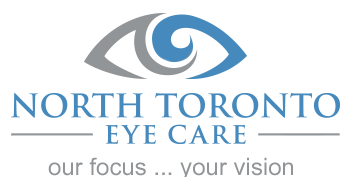Original article from Healio
February 5, 2018
While the Super Bowl draws the NFL season to a close, several health issues raised around this year’s game remain important for clinicians to consider.
New England Patriots wide receiver Brandin Cooks was forced to leave the game in the second quarter following a significant blow to the head, entering the NFL’s concussion protocol and not returning to the game. This was a stark reminder of one of the most serious health risks faced by professional athletes, but there is also evidence that high school and youth athletes are at increased risk for brain injury, with primary care clinicians at the forefront of diagnosing these injuries and counseling athletes and their parents on their recovery.
Several studies have looked at possible links between major sporting events and heart disease and while no definitive correlation has been established, making patients aware of the warning signs associated with heart disease and stressful sessions can be an important preventive step.
This year the Super Bowl coincided with World Cancer Day, and football Hall of Famer Jim Kelly, himself a cancer survivor, used the opportunity to call attention to the importance of cancer screening and prevention.
To help medical professionals enhance and enrich the lives of their patients, HealioFamily Medicine compiled some of the latest information and research regarding ways to avoid these and other health conditions. – by Janel Miller
Watching professional sports can potentially trigger cardiovascular events due to increased heart rate. John Higgins, MD, from the McGovern Medical School at UT Health, discussed the possible risks and how to prepare for them, including ways that fans can monitor their cardiovascular health during the game to avoid events such as stroke, myocardial infarction or hypertensive emergency.
Experts provide tips on diagnosing, treating concussions
A prompt diagnosis is critical when encountering a patient who might have a concussion, a sports medicine doctor who specializes in sports-related concussion management told Healio Family Medicine.
“Timing is everything,” Robert Franks, DO, FAOASM, director, Rothman Institute Concussion Program in Philadelphia said. “We need to get these patients into treatment as quickly as possible.”
NFL, NHL greats discuss concussions, CTE, PCPs’ role in concussion management
Many former players are still suffering from the after effects of their own pursuit of the Lombardi Trophy or Stanley Cup. They shared their stories of injury, symptoms, treatment, and, in some instances, how their injuries still affect them to illustrate how the conversation on concussions has turned in the past 35-plus years.
EyeGuide to pitch concussion test at Super Bowl
Philadelphia-based startup, EyeGuide, makers of a medical device capable of detecting brain injuries pitched its concussion management platform at 1st and Future, the NFL’s Super Bowl startup competition geared toward player safety prior to the Super Bowl.
Jim Kelly, football great and cancer survivor, joins effort to help those ‘fighting for their tomorrow’
The former Buffalo Bills quarterback and member of the Pro Football Hall of Fame encouraged all Americans touched by cancer to take the Your Cancer Game Plan Challenge.
The national awareness campaign celebrates patient advocates who dedicate their lives to helping individuals with cancer and their loved ones.
At the Advances in Throwing: Latest on Injury Treatment and Performance Optimization Symposium, John D. Kelly IV, MD, an orthopedic surgeon said throwing injuries are preventable when the proper intervention is given in a timely fashion.
No significant link seen between NFL playing career and long-term mortality vs limited NFL exposure
There was no association between National Football League players who had careers beginning between 1982 and 1992 and a statistically significant difference in all-cause mortality compared with replacement players who had limited exposure in the league, according to a study published in JAMA.
